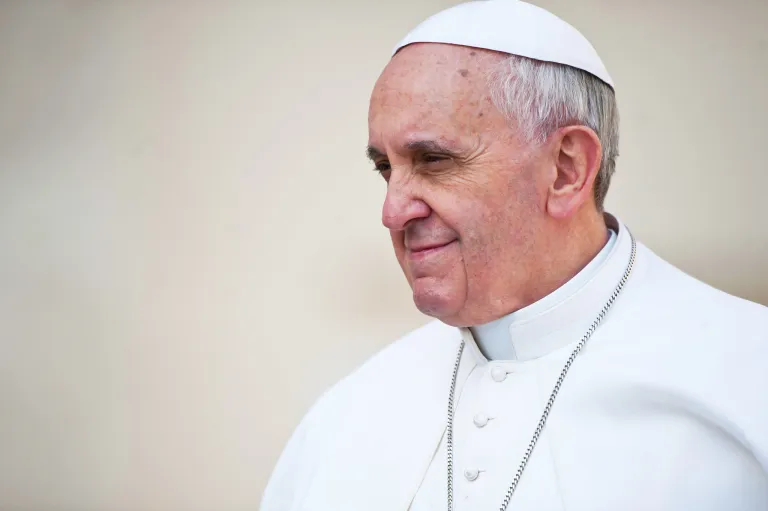
Pope Francis
The life and impact of Pope Francis known for his progressive views and global influence on climate, peace, LGBTQI+ rights, migration, and social justice.
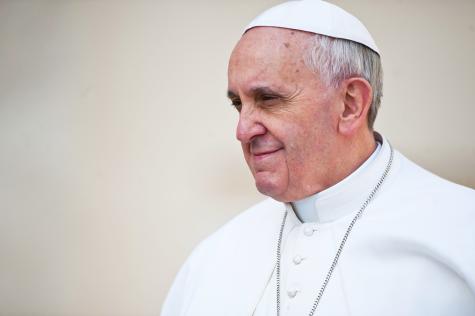
➡️ Pope Francis Obituary - Progressive Legacy
Pope Francis (1936-2025) served as head of the Catholic Church and sovereign of the Vatican City State for 12 years and continued his duties right up until the end.
He was the first Jesuit pope of the Catholic Church and the first pope from the Global South. His willingness to foster progress meant that Pope Francis faced resistance from traditionalists and conservative factions in the clergy throughout his tenure.
Jump straight to our resources on the late ➡️ Pope Francis
Explore our comprehensive guides on -
-
Religion, Christianity, and the Catholic Church
-
The Vatican and Former Popes
-
Pope Francis' call for Climate Action
-
Pope Francis as a Voice for Peace
-
Pope Francis as an Advocate for Migrants
-
Pope Francis Obituary
-
Compassion, Kindness, and Simple Living
From the first days of his papacy, Pope Francis sought to soften the face of the Catholic Church. His lasting legacy will be his great humility, commitment to reform, and progressive stances on important social justice issues. His dedication to compassion and mercy was demonstrated during his visit to prison inmates almost immediately after his 38-day hospitalisation, where he celebrated Mass of the Lord's Supper and personally greeted around 70 prisoners.
"A little bit of mercy makes the world less cold and more just." - Pope Francis
Key Accomplishments
-
COMMITMENT TO REFORM
Pope Francis worked towards reforming the Vatican bureaucracy. His goals focused on increasing transparency and accountability within the Church. He sought to help the Church develop its "heart for the poor" and its capacity for listening, sensing need, and responding.
In 2022, Francis approved a new constitution for the Vatican, which included its culture, structure, and practices. The "Praedicate Evangelium" was very clear that the power in the hands of the Church was meant purely to serve. He also emphasised the importance of decentralising authority to avoid abuses and financial controversy.
His most famous writings include the Amoris Laetitia on love within the family, Gaudete et exsultate on the call to holiness for all persons, Vos estis lux mundi on the responsibility to report sexual abuse, the Fratelli tutti on fraternity and social friendship, and the Pascite gregem Dei which reformed Vatican penal law, strengthening penalties for sexual abuse and financial crimes.
-
LESSONS ON CAPITALISM & MATERIALISM
Pope Francis's decision to live simply in a clerical guest house and reject the grand papal palace, drive a modest car, wear plain robes, and wash the feet of prisoners is a reflection of his humility and commitment to simple living.
He believed that the economy is a reflection of our values. Broken values result in a broken economy. Capitalism, which exploits, extracts, and abandons, benefits only a few and is rarely enjoyed by the poor, the marginalised, and the excluded.
Pope Francis connected capitalism and its destructive environmental impact in his appeal 'On Care for Our Common Home'. It also highlighted the plight of those living in poverty, who are the most vulnerable to the effects of climate change and the least responsible for it.
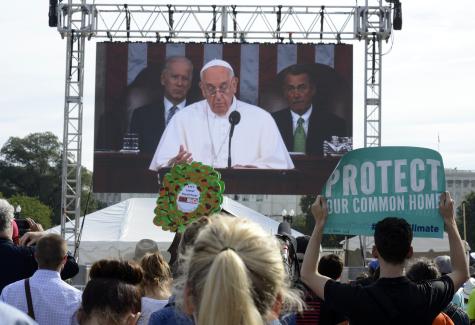
-
CLIMATE CHANGE ADVOCATE
Defending the climate was a top priority for Pope Francis, who linked the impact of climate change to poverty. In one of his most important pieces of work, the decree Laudato Si, Pope Francis was openly critical of wealthy nations for inflicting harm on less developed ones.
He called for urgent action to protect the planet and its people, declaring it our moral duty to care for the environment and the poor. His stance helped to raise awareness and put pressure on world leaders to support sustainable policies and implement change.
-
PACIFIST & PROMOTER OF PEACE
A vocal pacifist and critic of warmongering nations, Pope Francis condemned the logic of war and the disastrous human cost which inevitably follows. Labelling the War on Gaza 'terrorism', he was a leading supporter of Palestinian liberation and peace in the Middle East.
In his last ever public address on Easter Sunday at Saint Peter's Square, he called for an immediate ceasefire, a release of all hostages, an end to the dire humanitarian crisis, and peace to come to both Israelis and Palestinians from all religious backgrounds.
On the Russian invasion of Ukraine, Pope Francis called for negotiations to end the war and promoted open dialogue as a tool to achieve a just and lasting peace.
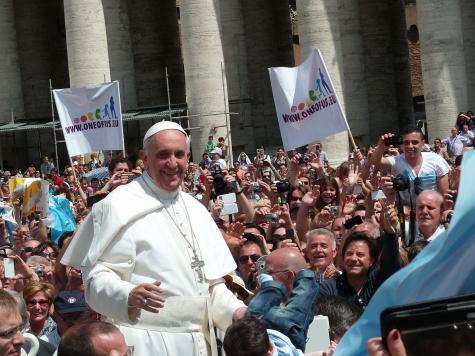
-
CHAMPION FOR MIGRANTS & REFUGEES
Pope Francis dedicated much of his time to marginalised communities, the poor, refugees, and even prisoners in a display of his dedication to social justice. He was a passionate voice for migrant rights, promoting their dignity and human rights were hugely important to him.
Recognising that mass migration is now a permanent feature of the 21st century for both economic and climate-related reasons, the Pope condemned the draconian immigration, deportation, and border policies of many nations, particularly the U.S.
Acting as a counter to declining empathy, European indifference, and the poor conditions that await migrants, Pope Francis visited numerous migrant camps, visited sites of migrant casualties, and even rescued families from the Greek island of Lesbos.
-
SUPPORT FOR THE LGBTQI+ COMMUNITY
Pope Francis condemned countries that consider homosexuality a crime and supported a shift towards integration of all members of the LGBTQI+ community into society. In 2023, he formally approved blessings for same-sex couples.
With his famous words 'Who am I to judge?' he paved the way to a more tolerant and even welcoming attitude towards gay, lesbian, and trans lifestyles in the Church. Official doctrines towards gay marriage remain unchanged, and more concrete changes are needed to allow for further integration and the removal of discriminatory barriers.
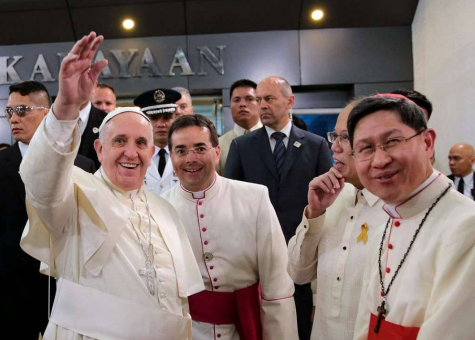
-
TOLERANCE & ACCEPTANCE
Pope Francis set the Catholic Church on the right path to radical change on several social justice issues. For the first time, the Church became a welcoming place for transgender people, it offered an open invitation to people who are divorced, and it encouraged greater leadership roles for women.
He worked hard to build bridges between other religions, those of no faith, and other Christian factions. This openness has been pivotal in promoting global peace and greater inter-faith understanding.
His historic visit to Iraq to meet with Grand Ayatollah Ali al-Sistani delivered a strong message of coexistence and religious tolerance as the country is condemned for its treatment of Christian minority communities.
The Next Pope - Continuing the Legacy
Although the tenure of Pope Francis was not perfect, we are hopeful that the future Pope will embrace the more progressive and open-minded approaches he adopted. Unafraid to challenge traditionalists, Pope Francis redefined the concept of moral leadership and was a role model to millions of his devotees.
Progressives will be looking to the new Pope for even greater reforms, a harder stance on important issues, and a commitment to the progress already achieved.
For those of you who want to read more about Pope Francis and his Theology we recommend Wikipedia.
Author: Rachael Mellor, 22.04.25 licensed under CC BY-SA 4.0
For further reading on Pope Francis, see below ⬇️
Info on Pope Francis
- Pope Francis - General Info 30568
- Our Links on The Pope 30567
- Pope Francis - Obituary 30569
- Pope Francis - Refugees 23454
- Pope Francis - Peace 30570
- Articles on Pope Francis 30571
- Videos on Pope Francis 30572